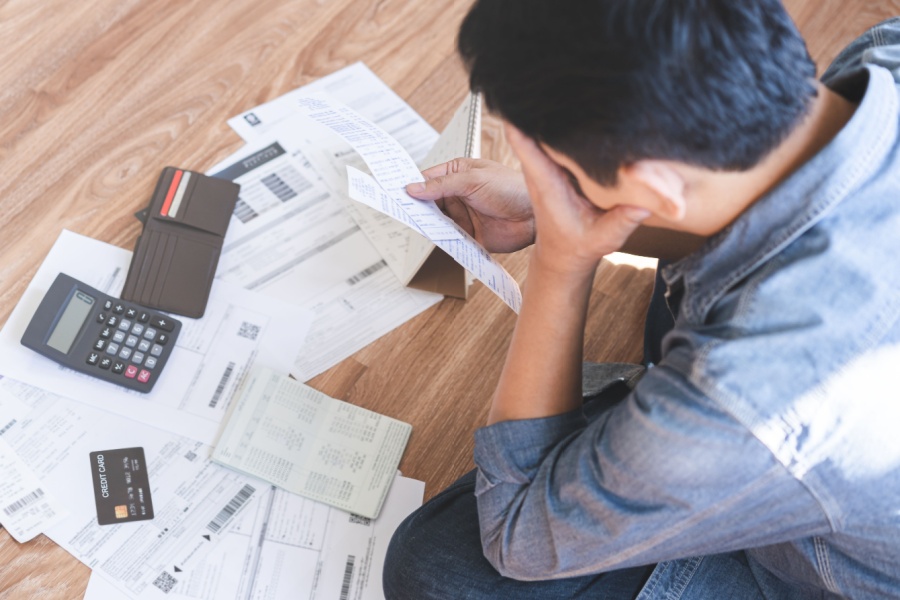Owning a house and lot is a significant milestone for many Filipinos. It’s a symbol of financial stability and a place where families can build memories. However, achieving this dream requires careful planning and disciplined saving.
This home buying guide will walk you through practical steps and strategies on how to save money for your first house and lot.
What is the Best Amount to Save for a House?
As with most things that relate to house buying, there isn’t a set amount you need to save for a house. The money you set aside is heavily based on several factors, including your desired location, the type of property you want, and your personal financial situation. However, as a general guideline, saving for a house typically involves aiming for a down payment of at least 20% of the property’s purchase price.
What is the Best Way to Save Money for a House and Lot?
Understanding the importance of disciplined saving is important when saving for your first home. By following strategic saving strategies that fit your financial situation, you can steadily build towards your goal of homeownership. Here are some ways on how you can save for a house and lot.
Set Clear Goals
The first step in any financial journey is to set clear, achievable goals. Start by identifying the type of house and lot you want, considering factors such as location, size, and amenities.
Researching the current market prices in your desired area is essential to understand the financial landscape of real estate and set a realistic savings goal. Factors such as the type of housing and its location significantly influence this target.
For example, a pre-selling house and lot in Cavite, which is a property sold before construction is completed, often comes at a lower price compared to a ready-for-occupancy unit. Additionally, these pre-selling homes are typically located in emerging areas or developments, making them more financially accessible and enabling individuals to aim for a more achievable savings target.
Tip: Use online real estate platforms like Lamudi, Property24, and OLX Philippines to compare prices and get an idea of the costs.

Assessing Your Financial Situation
Before you start saving, assess your current financial situation. Calculate your monthly income, expenses, and existing debts. This will help you understand how much you can realistically save each month.
You can do this by:
- Tracking your expenses. Use a budgeting app or a simple spreadsheet to track your monthly expenses.
- Identifying unnecessary expenses. Look for areas where you can cut back, such as dining out, subscriptions, and entertainment.
- Creating a budget. Develop a monthly budget that prioritizes saving for your house and lot.
Building an Emergency Fund
While a home is a great investment for OFWs, you shouldn’t put all of your money into it.
In fact, you need to build your emergency fund before you even begin saving for a house. This will serve as a financial safety net, protecting you from unexpected expenses and setbacks. Building an emergency fund, which is usually 3-6 months’ worth of living expenses, ensures that you have funds readily available to cover urgent needs, such as medical emergencies, car repairs, or sudden job loss, without having to dip into your house savings. This prevents you from derailing your long-term savings goals and helps you maintain financial stability throughout your homeownership journey.
When building an emergency fund, you need to:
- Set a target amount. Calculate your monthly expenses and multiply them by the number of months you want to cover.
- Automate your savings. Set up automatic transfers to a separate savings account dedicated to your emergency fund.
- Prioritize. Make building your emergency fund a priority before diverting funds to your house savings.
Choosing the Right Savings Account
Selecting the right savings account will help you maximize your savings. Look for accounts that offer higher interest rates and minimal fees. Consider opening a high-yield savings account or time deposit that can help your money grow faster.
Exploring Government Housing Programs
The Philippine government offers several housing programs that can help you purchase a house and lot for sale in General Trias. These programs provide lower interest rates, longer payment terms, and subsidies for eligible buyers.
Key programs to look into are:
- Pag-IBIG Fund Housing Loan. Provides affordable housing loans to members with interest rates as low as 3% per annum.
- Socialized Housing Program. Aimed at low-income families, offering subsidized loans and flexible payment terms.
- National Housing Authority (NHA) Programs. Provides affordable housing options and financial assistance to qualified beneficiaries.
Making Use of Financial Instruments
Aside from traditional savings accounts, consider investing in financial instruments to grow your savings faster. Diversifying your investments can help you achieve higher returns over time.
Some investment options to consider are:
- Mutual funds. These pooled funds are managed by professional fund managers that invest in a diversified portfolio of stocks, bonds, and other securities.
- Unit Investment Trust Funds (UITFs). Similar to mutual funds, these are offered by banks with various risk levels and investment horizons.
- Stocks. Investing in the stock market can offer high returns but comes with higher risks. Make sure to do thorough research or consult with a financial advisor before you begin.

Reducing Debt
High-interest debt can significantly delay your ability to save. Prioritize paying off high-interest debts, such as credit card balances and personal loans, to free up more money for your house savings.
To help, here are some effective debt reduction strategies:
- Debt Snowball Method. Focus on paying off the smallest debts first while making minimum payments on larger debts.
- Debt Avalanche Method. Pay off debts with the highest interest rates first to save on interest payments. Once you’ve paid those off, you then move onto the debt with the second highest interest rate.
- Debt Consolidation. Combine multiple debts into a single loan with a lower interest rate.
Increasing Your Income
Boosting your income can speed up your savings. Look for opportunities to increase your earnings, such as taking on a side job, freelancing, or starting a small business.
To increase your income and make saving for a house faster, consider different avenues for additional earnings. Freelancing offers a flexible option, allowing you to leverage skills such as writing, graphic design, or programming on platforms like Upwork or Freelancer. Online selling provides another opportunity, enabling you to sell products through e-commerce platforms such as Lazada, Shopee, or Facebook Marketplace.
Additionally, looking into part-time or weekend jobs that align with your schedule can provide a steady stream of supplementary income.
Practicing Thriftiness
When it comes to saving for your first home, being kuripot can come in handy. Adopting a matipid lifestyle can significantly enhance your savings, helping you minimize unnecessary expenses and maximize the value of every peso spent.
You can cut down on your expenses by:
- Cooking at home. Save money by preparing meals at home instead of dining out.
- Buying in bulk. Purchase non-perishable items in bulk to save money in the long run.
- DIY projects. Handle minor home repairs and improvements yourself to avoid labor costs.

Seeking Professional Advice
Consulting with a financial advisor can provide personalized guidance tailored to your financial situation. They can help you create a comprehensive savings plan, recommend suitable investments, and offer strategies to achieve your goals faster.
When choosing a financial advisor to help you save for a house, consider several important factors. First, check their credentials, ensuring they have certifications like Certified Financial Planner (CFP) or Registered Financial Planner (RFP). Experience is important, so, look for an advisor with a background in real estate and housing finance to ensure they can provide the necessary guidance you need. Don’t forget to assess their reputation by reading reviews and testimonials. You can also ask for recommendations from friends and family to find a reliable advisor who can support your financial goals effectively.
Staying Motivated
Saving for a house and lot is a long-term commitment that requires discipline and persistence. Staying motivated throughout the journey is crucial to achieving your goal.
One effective strategy is to visualize your goal by keeping a picture of your dream house in a visible place, which can serve as a constant reminder of your objective. Regularly tracking your progress and celebrating milestones along the way can also keep you motivated and reinforce your commitment. If you’re feeling unmotivated, you don’t have to go through it alone! There are support groups who share similar goals which can provide mutual encouragement and support, helping you stay focused and inspired on your journey to homeownership.
Take the Right Steps Towards Homeownership
Saving for a house and lot in the Philippines is a huge milestone that requires careful planning, disciplined saving, and smart financial decisions. It doesn’t happen overnight, so patience is key! Stay motivated, seek professional advice, and using these money saving tips can help you buy your first house and lot. With determination and the right strategies, you’ll be well on your way to owning your dream home.
Are you an OFW dreaming of owning a house and lot in the Philippines? Look into the affordable pre-selling homes offered by Minami. With flexible financing options and competitive prices, Minami makes it easier for you to become a homeowner sooner. Start your journey towards owning your dream home today—explore Minami’s house and lot for sale in the Philippines for OFWs and discover how we can help make your homeownership goals a reality.
